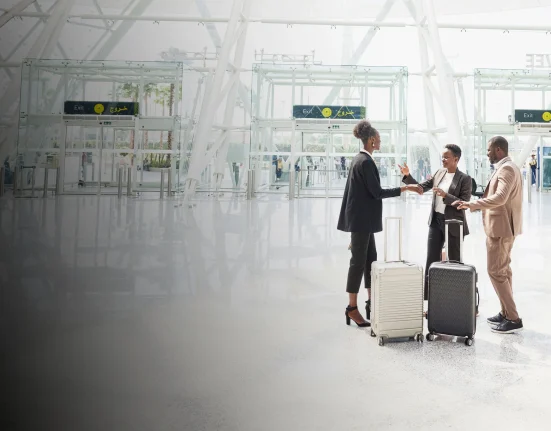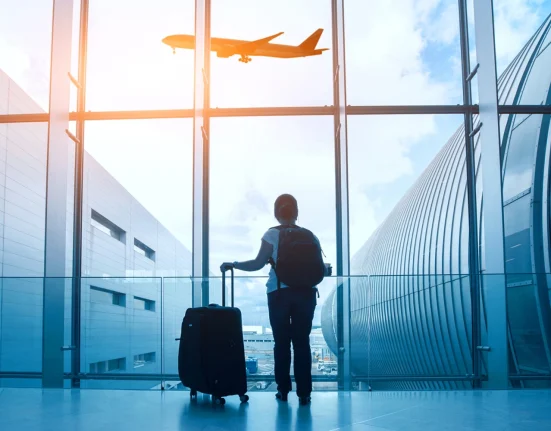In recent years, the lines between business and travel have blurred in ways previously unimaginable. As remote work, globalization, and the digital economy reshape the way we live and work, a growing number of professionals are embracing a lifestyle that combines productivity with exploration. Business travel is no longer confined to boardrooms, conferences, or brief client visits. It’s becoming a flexible, lifestyle-driven opportunity to grow professionally while experiencing the world.
This fusion of business and travel is transforming the workplace. Entrepreneurs are launching startups from Bali, consultants are managing clients across time zones from co-working spaces in Lisbon, and multinational teams are bonding through company retreats in the Alps. Whether you’re an executive or a freelancer, the future of work is mobile, and business travel is at the heart of this evolution.
The Rise of the Location-Independent Professional
The traditional office is no longer the only space where serious business gets done. Fueled by advancements in technology and shifts in workplace culture, more professionals are choosing to work from wherever they feel most inspired. This rise of the location-independent worker has created a new dynamic where business and travel go hand-in-hand.
Cloud-based tools like Zoom, Slack, Notion, and project management platforms have made it easy to stay connected and productive from anywhere in the world. This has enabled digital nomads, remote employees, and business owners to operate across borders while maintaining high levels of efficiency.
Beyond convenience, this lifestyle offers something deeper: a sense of freedom. Professionals are no longer tethered to one city or office, and this flexibility has become a valuable perk in a competitive job market.
Business Travel as a Growth Strategy
While virtual meetings and emails are effective, in-person interactions still hold a unique power. Face-to-face meetings help build trust, secure partnerships, and foster long-term relationships. Businesses that invest in travel as a growth strategy often see increased client retention, better team dynamics, and new market opportunities.
International conferences, trade expos, and networking events continue to be essential touchpoints for many industries. These events allow professionals to showcase their products, learn about global trends, and create meaningful connections that would be hard to replicate digitally.
Furthermore, companies that send employees to international markets often gain a competitive edge by developing local insights, understanding cultural nuances, and spotting trends before they go mainstream.

The Bleisure Travel Trend
One of the fastest-growing segments in business travel is “bleisure” – the blending of business and leisure. More travelers are extending work trips to explore local attractions, try new cuisines, or unwind after a week of meetings. According to several travel industry surveys, over 60% of business travelers add leisure days to their trips when possible.
This trend has changed how companies and travelers plan trips. Hotels now offer wellness amenities, co-working spaces, and curated local experiences tailored to professionals. Airlines are also adjusting their offerings to accommodate longer stays and flexible ticketing.
For individuals, bleisure travel helps improve work-life balance. It allows for mental rejuvenation and creates memorable experiences that help reduce the burnout commonly associated with frequent travel.
Digital Nomads: Redefining Business Travel
Another key driver of the evolving business travel landscape is the digital nomad movement. These are professionals—freelancers, consultants, tech workers, and entrepreneurs—who choose to work remotely while living in different parts of the world.
Cities like Medellín, Chiang Mai, Barcelona, and Tbilisi have become global hotspots for digital nomads due to their affordability, infrastructure, and vibrant communities. In response, governments have started offering digital nomad visas that allow extended stays without the need for complex work permits.
For businesses, this opens up new possibilities. Hiring remote talent globally means access to a broader skill pool, lower operational costs, and increased employee satisfaction. It also signals a shift from traditional office-based employment to outcome-focused work culture.
Challenges of Modern Business Travel
While the opportunities are exciting, blending business and travel also presents challenges. Professionals must navigate different time zones, maintain productivity in unfamiliar environments, and manage personal routines while on the move.
One of the biggest risks is burnout. Constant travel, jet lag, and disrupted routines can take a toll on both physical and mental health. To combat this, it’s important to set boundaries, schedule downtime, and prioritize self-care.
Another concern is cost. Business travel can be expensive, especially when combining it with leisure. Companies must implement policies that encourage responsible budgeting without sacrificing comfort or productivity. Travel management tools and expense tracking software can help maintain transparency and control.
Cybersecurity is also a growing issue. Remote professionals working from public Wi-Fi networks or shared spaces must take extra precautions to protect sensitive company data.
Best Practices for Successful Business Travel
To make the most of business travel in this new era, both individuals and companies should follow key best practices:
1. Plan Ahead:
Book accommodations that support productivity—fast Wi-Fi, comfortable workspaces, quiet environments. Consider co-living or extended-stay options for longer trips.
2. Embrace Flexibility:
Travel with a flexible mindset. Things won’t always go as planned, especially when traveling internationally. Being adaptable improves the overall experience.
3. Use Tech Wisely:
Leverage digital tools to stay organized. From calendars and video conferencing to VPNs and file-sharing apps, the right tech stack can make working on the road seamless.
4. Prioritize Health:
Stay hydrated, maintain a healthy diet, get enough rest, and make time for physical activity. Consider travel insurance and health coverage for emergencies.
5. Combine Purpose with Experience:
Use each trip not just for business objectives but to learn something new—about the culture, market, or even yourself. This enriches both your work and your life.
The Future of Business Travel
As we look ahead, business travel will likely continue to evolve in response to technology, employee preferences, and global economic trends. Here are a few predictions:
Longer, Purposeful Trips: Rather than flying frequently for short meetings, companies will favor fewer, more intentional trips with greater impact.
Sustainability Efforts: Carbon offset programs, eco-friendly hotels, and sustainable transport options will become standard practice.
Global Workforces: Cross-border hiring and distributed teams will make international travel part of routine operations.
Personalization: AI-driven travel tools will help personalize travel experiences based on preferences, budgets, and work needs.

Conclusion
The convergence of business and travel is opening up a world of possibilities for how and where we work. Whether you’re an entrepreneur exploring new markets, an executive managing global teams, or a remote worker seeking inspiration, business travel offers unique advantages in today’s dynamic professional landscape.
What once required rigid schedules and traditional offices can now be done from beachside cafés, bustling cities, or serene mountains—proving that work and travel are no longer separate lives, but two sides of the same modern lifestyle.








